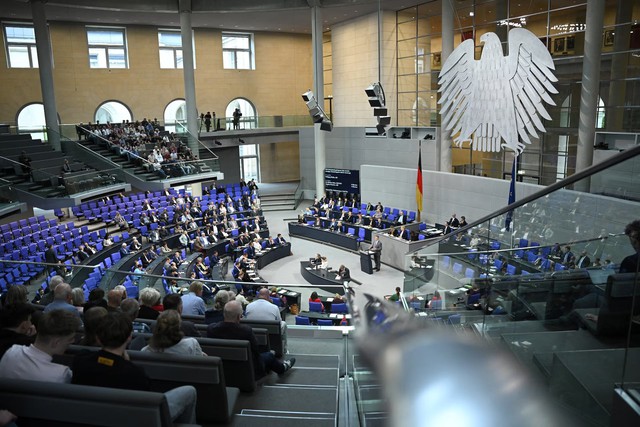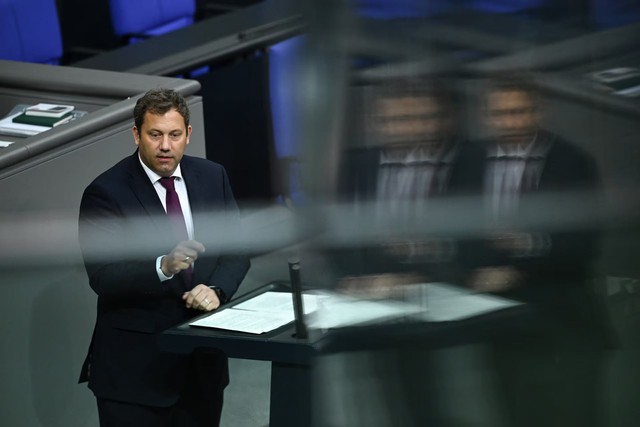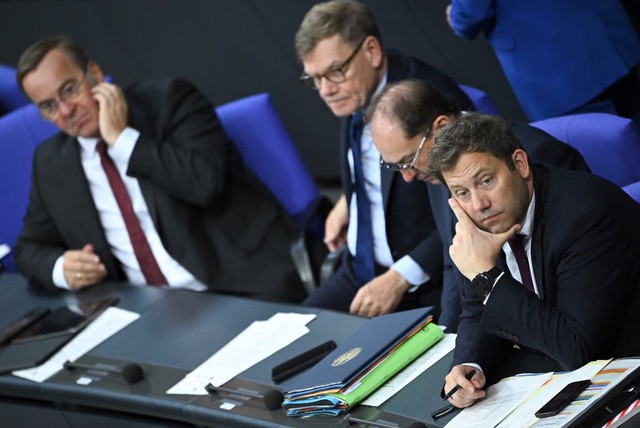
A general view during a plenum session of the lower house of parliament, the Bundestag, to vote on the Federal Government's draft legislation for the 2025 federal budget, in Berlin, Germany September 18, 2025. Photo: Reuters
The 2025 budget allows for total investment of almost 116 billion euros ($136.94 billion), made possible thanks to a 500-billion-euro infrastructure fund and an exemption from debt rules for defence spending approved in March .
"It is a huge paradigm shift in German fiscal policy," Finance Minister Lars Klingbeil told lawmakers ahead of the vote in the Bundestag, Germany's lower house of parliament.
Germany has thrown off decades of fiscal conservatism in the hope that public investment can kickstart the lagging economy, while a boosted defence budget aims to secure future military support for Ukraine and meet more ambitious spending targets for NATO allies.
Under pressure from U.S. President Donald Trump to become more self-reliant in the wake of Russia's military campaign in Ukraine, NATO leaders agreed in June to up the defence alliance's spending target to 3.5% of each member's GDP from a previous 2%.
Germany's 2025 budget takes defence spending to 2.4% of its GDP, still shy of the new target.

German Vice Chancellor and Finance Minister Lars Klingbeil speaks during a plenum session of the lower house of parliament, the Bundestag, to vote on the Federal Government's draft legislation for the 2025 federal budget, in Berlin, Germany September 18, 2025. Photo: Reuters
Europe's biggest economy has been operating on a provisional budget this year after the former ruling coalition collapsed last November with no time to pass the 2025 spending plans.
The core budget for this year covers spending of 502.5 billion euros.
Adding investments from the infrastructure fund and another 100-billion-euro fund for defence created by former Chancellor Olaf Scholz following Russia's campaign in Ukraine, the budget has a total size of 591 billion euros.
The core budget envisages borrowing of 81.8 billion euros in 2025.
Total borrowing rises to 143.2 billion euros, adding 37.2 billion euros from the special infrastructure fund and 24.1 billion from the special fund for defence, a finance ministry spokesperson said.

German Vice Chancellor and Finance Minister Lars Klingbeil, Interior Minister Alexander Dobrindt, Foreign Minister Johann Wadephul, and Defence Minister Boris Pistorius attend a plenum session of the lower house of parliament, the Bundestag, to vote on the Federal Government's draft legislation for the 2025 federal budget, in Berlin, Germany September 18, 2025. Photo: Reuters
With the 2025 plan secure, the focus of new Chancellor Friedrich Merz's coalition government shifts to budgets for the coming years, with difficult discussions ahead as Merz's conservatives push for savings in welfare, prompting pushback from their Social Democrat partners.
The coalition currently faces a 30-billion-euro hole in its financial plan for 2027.
"We will have to deal with huge challenges there," Klingbeil said, adding, however, that he was confident a solution would be found.
Parliament is set to begin debating the draft 2026 budget next week, with final approval expected in November.
($1 = 0.8471 euros)


Max: 1500 characters
There are no comments yet. Be the first to comment.